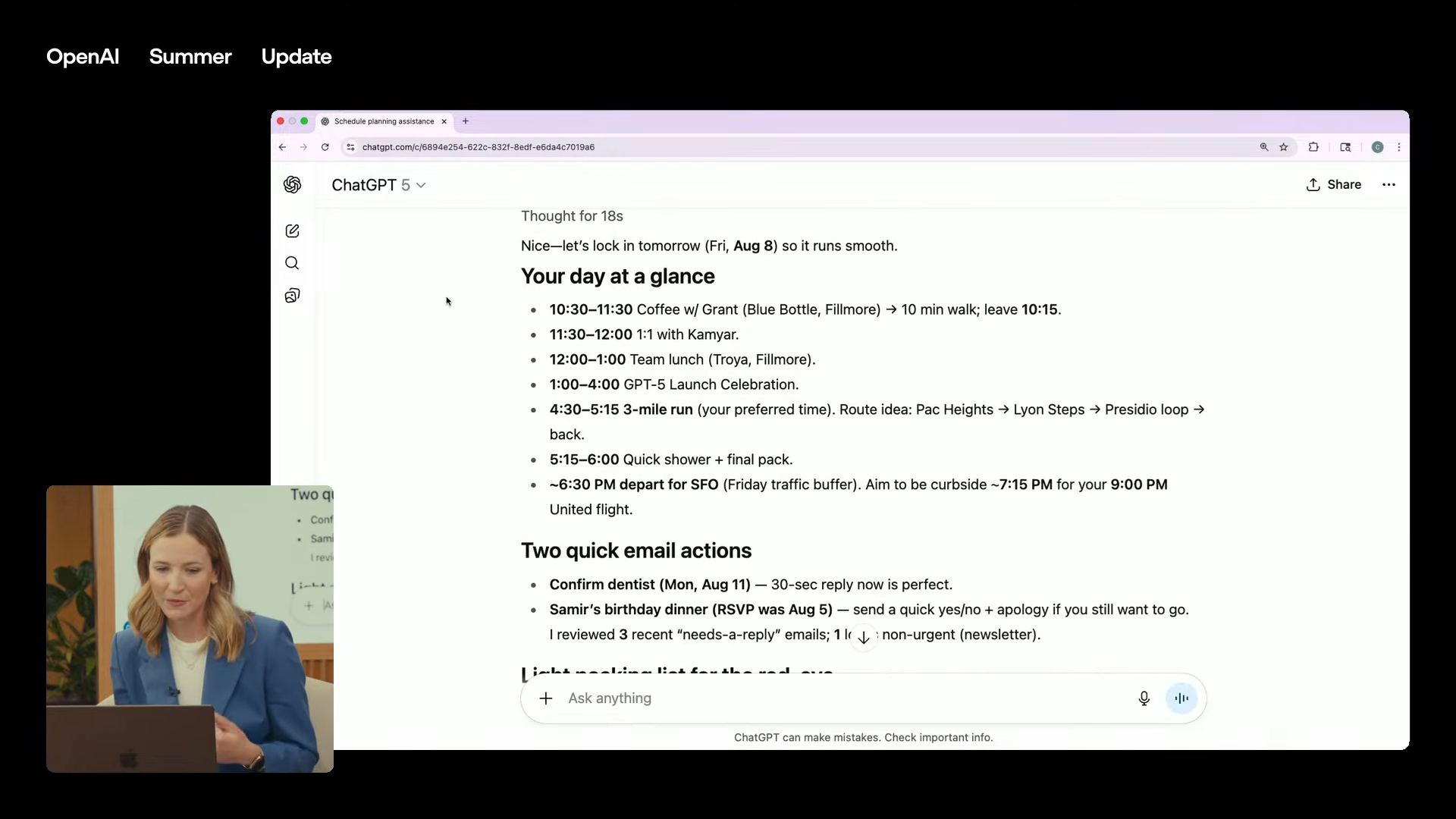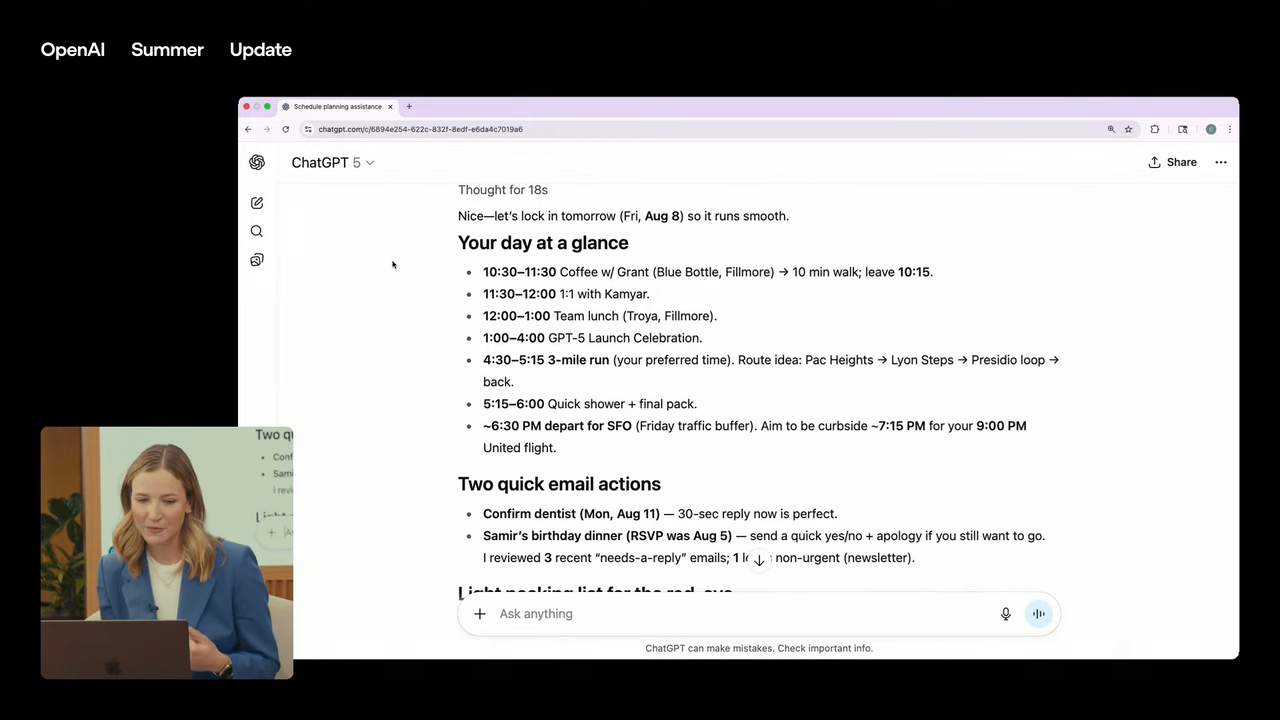Key Points
- OpenAI launched a ChatGPT integration with Gmail, Google Calendar, and Google Contacts during the GPT‑5 debut.
- The feature is optional and requires users to opt in and confirm each connection.
- ChatGPT can generate daily overviews by scanning calendar events and unread emails.
- Users interact with the AI using natural language, without needing to set up complex rules.
- No emails are sent automatically; explicit user confirmation is required for any action.
- The integration is currently available to ChatGPT Pro subscribers, with broader rollout planned.
- Privacy safeguards aim to keep sensitive information under user control.
- The feature aims to reduce the mental load of juggling multiple productivity apps.

Feature Overview
OpenAI announced a new integration as part of its GPT‑5 debut, allowing ChatGPT Pro subscribers to connect their Gmail, Google Calendar, and Google Contacts directly to the chatbot. The feature is optional and requires users to opt in, confirming each link before the AI can access any data.
How It Works
Once connected, ChatGPT can scan a user’s calendar and email inbox to generate a concise overview of the upcoming day. It can highlight scheduled events, flag important unread messages, and even draft responses based on the content it reads. Users interact with the system using natural language, asking questions such as “What’s on my plate today?” and receiving a combined view of appointments and relevant emails without toggling between separate apps.
Privacy and Control
OpenAI stresses that the integration is designed with user privacy in mind. The AI does not automatically send emails or take actions without explicit user confirmation. Each request to read or act on data requires a separate approval step, ensuring that sensitive information—such as medical appointments or personal plans—remains under the user’s control.
Potential Benefits
The integration aims to reduce the mental load associated with managing multiple digital tools. By consolidating calendar events, email threads, and contact details into a single conversational interface, users can quickly assess priorities and identify tasks that need attention. This could help streamline daily planning, improve response times to important messages, and provide a more human‑like assistant experience.
Comparison to Existing Tools
While other scheduling bots and email add‑ons already pull event details or send reminders, OpenAI’s approach adds conversational flexibility. Users do not need to set up complex rules or forward emails; they simply ask the chatbot to perform a task in everyday language. The integration is currently limited to ChatGPT Pro users, with OpenAI indicating plans to broaden availability in the future.
Implications for Competition
The move positions OpenAI to compete more directly with other AI services that integrate with Google’s ecosystem. By offering a seamless link between ChatGPT and Google’s productivity suite, OpenAI provides an alternative for users who prefer ChatGPT over competing AI assistants.
Conclusion
OpenAI’s new integration represents a step toward more integrated, AI‑driven personal productivity tools. With explicit user consent and a focus on conversational interaction, the feature promises to make daily planning more efficient while maintaining privacy safeguards.
Source: techradar.com
